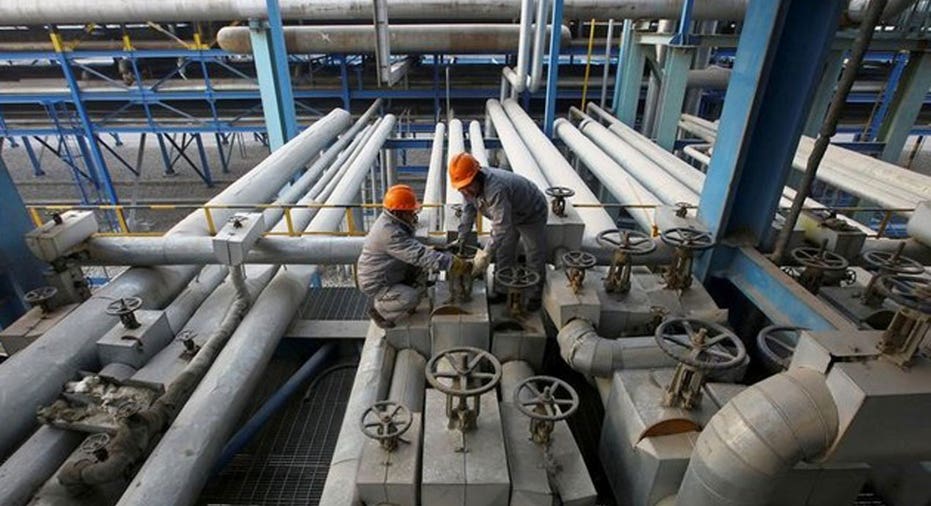Oil up on OPEC output decline; U.S. refinery restarts

Oil prices rose on Tuesday after OPEC forecast higher demand in 2018 and Russia and Venezuela confirmed their commitment to a production-cutting deal to reduce the global crude glut.
In its monthly report, the Organization of the Petroleum Exporting Countries also said the two hurricanes that hit the United States in recent weeks would have a "negligible" impact on demand.
About 6.1 million customers were without power following Hurricane Irma, down from a peak over 7.4 million late Monday, according to local utilities.
The market was assessing Irma's effect on demand, even as refinery restarts in the wake of Hurricane Harvey boosted expectations for crude oil consumption.
The largest refinery in the United States, in Port Arthur Texas, was running at reduced rates, sources told Reuters.
Brent crude settled up 43 cents or 0.8 percent to $54.27 per barrel. Its session low was $53.42.
U.S. West Texas Intermediate (WTI) was up 16 cents or 0.3 percent to $48.23 a barrel. It hit a session low of $47.73.
U.S. crude stockpiles rose nearly twice expected levels last week as refineries cut output following Hurricane Harvey, while gasoline and distillate inventories drew, industry group the American Petroleum Institute said after the market settled.
After the API report, U.S. gasoline futures rose, surpassing their session high.
Crude inventories rose by 6.2 million barrels in the week to Sept. 8 to 468.8 million, compared with analysts' expectations for an increase of 3.2 million barrels.
The U.S. Department of Energy's Energy Information Administration (EIA) reports Wednesday.
This week's numbers might be incomplete indicators of the longer-term supply and demand outlook, said Mark Watkins, regional investment manager at U.S. Bank.
"Over the next two to three weeks, the EIA inventory numbers will be rather sloppy because you have production disrupted, refineries going offline and online," he said. He added that OPEC figures are a better signal. "That’s why you have to look out further."
Output by OPEC's 14 member countries fell in August by 79,000 barrels per day (bpd) from July to 32.76 million bpd.
Should OPEC keep pumping at August's rate, the market would see a small supply deficit next year, versus a 450,000-bpd surplus implied by last month's report.
OPEC said inventories were falling and noted a rising premium of Brent crude for immediate delivery over that for later supplies.
Russian and Venezuelan energy ministers met in Moscow and confirmed their commitment to the output cut deal.
The U.S. EIA said it expects U.S. crude oil production in 2018 to rise by more than previously expected. (Additional reporting by Libby George and Fanny Potkin in London, and Jane Chung in Seoul; Editing by Marguerita Choy, Greg Mahlich and Chris Reese)



















